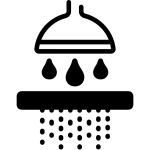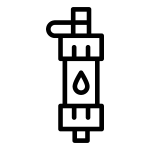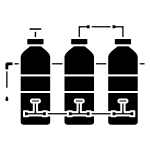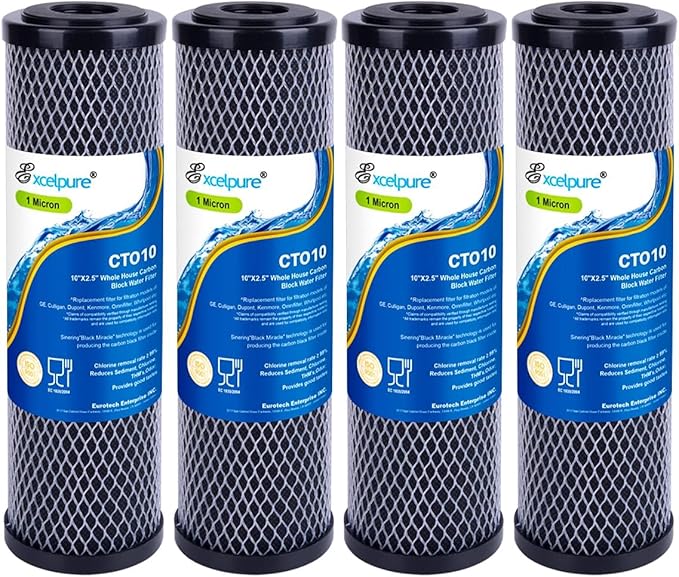When it comes to home water filtration, most people focus on removing contaminants such as chlorine, lead, or bacteria. However, many overlook the impact of calcium in water, which can cause long-term problems for your health, home appliances, and plumbing. This is where a calcium water filter becomes essential.
In this comprehensive guide, we will explore what calcium in water is, how it affects your daily life, the benefits of using a calcium water filter, the types available, and how to choose the right one for your home. Whether you’re already using a filtration system or just considering one, this article will give you everything you need to know.
What is Calcium in Water?
Calcium is a naturally occurring mineral commonly found in groundwater sources. It enters the water supply as it passes through limestone and other calcium-rich rocks. While calcium is essential for human health, especially for bones and teeth, too much of it in water can create problems.
Water with high calcium levels is referred to as “hard water.” It doesn’t pose immediate health risks, but it can lead to several inconveniences and long-term issues in household use.
Problems Caused by High Calcium in Water
Although calcium is not toxic, excessive amounts in water can cause the following issues:
1. Limescale Build-Up
Hard water leaves behind limescale, a white, chalky residue that builds up in pipes, faucets, showerheads, and appliances like water heaters and dishwashers. Over time, this can reduce water flow and damage your systems.
2. Reduced Appliance Lifespan
Home appliances that use water (such as washing machines and coffee makers) tend to wear out faster when used with calcium-rich hard water due to mineral buildup.
3. Poor Soap and Detergent Performance
Calcium interferes with the lathering of soap and detergents, meaning you use more product and still don’t get satisfying results—whether you’re washing dishes, doing laundry, or bathing.
4. Dry Skin and Hair
Hard water may contribute to dry, irritated skin and dull hair due to soap residue left behind. This is particularly problematic for people with eczema or sensitive skin.
5. Streaky Dishes and Laundry
If your dishes come out of the dishwasher streaky or your clothes feel stiff and scratchy after washing, hard water with high calcium is likely to blame.
What is a Calcium Water Filter?
A calcium water filter is a type of water filtration system designed specifically to remove or neutralize calcium ions from your water supply. These filters help in softening the water and preventing the problems listed above.
Some calcium filters don’t remove calcium completely but convert it into a harmless form that doesn’t cause buildup. Others completely eliminate it using a process like ion exchange.
Benefits of Using a Calcium Water Filter
Investing in a calcium water filter for your home or business offers several important benefits:
✅ Prolonged Appliance Life
By reducing calcium buildup, your appliances can last longer and work more efficiently, saving you money on repairs and replacements.
✅ Improved Skin and Hair Health
Filtered water is gentler on skin and hair, reducing dryness and irritation while allowing soaps and shampoos to work effectively.
✅ Cleaner Laundry and Dishes
Clothes become softer, and dishes come out cleaner without streaks or residue.
✅ Lower Energy Bills
Appliances like water heaters use less energy when they’re not clogged with scale buildup. This means better energy efficiency and cost savings.
✅ Better-Tasting Water
Many users report that filtered water tastes better and feels smoother.
Types of Calcium Water Filters
There are several types of calcium filters available depending on your needs and water source:
1. Ion Exchange Softeners
These systems swap calcium and magnesium ions with sodium or potassium ions, effectively softening the water. They’re ideal for whole-house use but require maintenance (like salt refilling).
2. Reverse Osmosis Systems (RO)
RO systems filter out calcium and many other impurities using a semi-permeable membrane. These are perfect for drinking water filtration but may not be practical for whole-house use without upgrades.
3. Polyphosphate Filters
These do not remove calcium but alter its chemical structure so it doesn’t adhere to surfaces or form limescale. Common in commercial use and for appliance protection.
4. Magnetic and Electronic Descalers
These devices change the structure of calcium ions using electromagnetic fields. While they don’t remove minerals, they reduce scaling. Their effectiveness is debated, but they are maintenance-free.
5. Activated Carbon Filters with Calcium Removal Layers
Some activated carbon filters include calcium-removal components, making them a good option for point-of-use filtering in kitchens and bathrooms.
How to Choose the Right Calcium Water Filter
Here are some factors to consider before purchasing:
🔹 Water Hardness Level
Test your water to determine its calcium content. You can use home test kits or get a professional water analysis.
🔹 Purpose
Decide whether you want filtered water for drinking only, or if you need a whole-house solution to protect plumbing and appliances.
🔹 Budget
Some systems, like reverse osmosis, can be costly upfront, while others, like magnetic descalers, are budget-friendly but may offer limited results.
🔹 Maintenance
Filters like ion exchange softeners require regular salt refills and maintenance. Make sure you’re prepared for the upkeep.
🔹 Space
Check how much room you have for installing the filter—under the sink, on a countertop, or near the main water line.
Installation and Maintenance Tips
To get the best results from your calcium water filter:
- Hire a professional plumber for whole-house installations.
- Replace filters as recommended by the manufacturer.
- Check the system regularly for leaks or clogs.
- Use filtered water for sensitive appliances like coffee makers and steam irons.
- Keep an eye on water pressure—a drop may indicate it’s time to replace or clean the filter.
Frequently Asked Questions (FAQs)
Q1: Is calcium in water harmful to health?
Calcium is not harmful and is actually beneficial to your diet. However, excess calcium in water can cause household problems.
Q2: Can I remove calcium from water naturally?
Boiling water may cause temporary hardness to settle, but it’s not a reliable method. Proper filtration is the most effective solution.
Q3: How do I test calcium levels in my water?
Use a water hardness test kit available online or in hardware stores. You can also contact your local water supplier or hire a professional.
Q4: Do shower filters remove calcium?
Some shower filters include media designed to reduce calcium content, but their effectiveness varies. A whole-house system is usually more effective.
Why Choose Cuoll for Your Calcium Water Filter Needs?
At Cuoll, we understand the importance of pure, safe, and high-quality water in your daily life. That’s why we offer a wide selection of advanced water filtration products, including calcium water filters, reverse osmosis systems, and bath filters.
Whether you’re dealing with hard water or just want to improve your family’s health, our expertly designed and easy-to-install systems ensure the best results. Our products are:
- ✅ BPA-Free and Eco-Friendly
- ✅ Designed for Long-Term Use
- ✅ Backed by Customer Support
- ✅ Easy to Maintain
- ✅ Affordable and Effective
Final Thoughts
Dealing with hard water? Don’t let calcium buildup take a toll on your appliances, skin, and peace of mind. A calcium water filter is a simple but powerful investment in your home, health, and lifestyle.
By understanding the effects of calcium in water and choosing the right filter for your needs, you can enjoy softer skin, cleaner clothes, better appliance performance, and overall water quality improvement.
✅ Ready to experience the difference?
Explore Cuoll’s full range of calcium water filters today and make the switch to cleaner, healthier living








